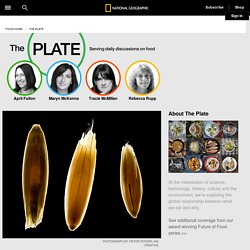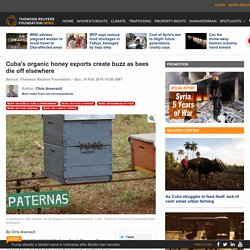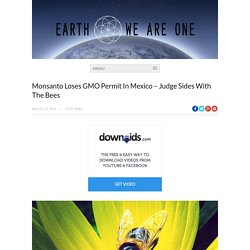

Areas HARVESTED Comparison □ (Real Scale) You want to reduce the carbon footprint of your food? Focus on what you eat, not whether your food is local. Another Study Suggests That Humans Are Not ‘Designed’ To Eat Meat. The Facts:A recent study conducted by researchers in California and France found that meat protein is associated with a very sharp increased risk of heart disease, while protein from nuts and seeds is actually beneficial for the human heart.Reflect On:There are multiple studies linking consumption of animal products to several diseases, and plant foods to the reversal and prevention of them.

Does this suggest our biology is not designed to eat animal products? Are humans supposed to eat meat and consume animal products? If you look into it, you may be surprised. Take milk, for example. The majority of people on the planet are lactose intolerant for a reason. The reason why I have a hard time believing that humans are meant to consume meat and animal products is because there’s so much science proving this. It was published in the International Journal of Epidemiology. 81,000 participants were analyzed for this study.
The study concluded that: – Michelle McMacken, MD So Why Do We Eat Meat? China's PhDs and MBAs are giving up city life for farming. Ancient Oat Discovery May Poke More Holes in Paleo Diet. Maybe the Paleo Diet should include a nice warm bowl of oatmeal.

Strict followers of the fashionable “caveman” regimen shun starchy foods, sticking to breakfasts such as cold halibut with fruit and snacks of pork chops and celery. Bread, pasta, and potatoes are verboten. Our Stone-Age ancestors didn’t gorge themselves on grains and other starchy fare, the thinking goes, and neither should we. But now evidence has emerged that people enjoyed their carbs even during the Paleolithic era, a period also known as the Old Stone Age that stretched from roughly 2.5 million to 12,000 years ago. A new analysis of a Paleolithic pestle shows it was dusted with oat starch, suggesting that ancient humans were grinding oats into flour and, presumably, dining on oatcakes or some other oat-based delicacy. The pestle recovered from Grotto Paglicci. The discovery is the latest challenge to the notion that prehistoric people fueled up with berries and venison while forgoing grains and other starchy carbs. Cuba's organic honey exports create buzz as bees die off elsewhere.
A beehive in San Antonio de los Banos in Artemisa province, Cuba.

Thomson Reuters Foundation/Chris Arsenault By Chris Arsenault SAN ANTONIO DE LOS BANOS, Cuba, Feb 9 (Thomson Reuters Foundation) - Long known for its cigars and rum, Cuba has added organic honey to its list of key agricultural exports, creating a buzz among farmers as pesticide use has been linked to declining bee populations elsewhere. Organic honey has become Cuba's fourth most valuable agricultural export behind fish products, tobacco and drinks, but ahead of the Caribbean island's more famous sugar and coffee, said Theodor Friedrich, the U.N. Food and Agriculture Organization's (FAO) representative for Cuba.
"All of (Cuba's) honey can be certified as organic," Friedrich told the Thomson Reuters Foundation. After the collapse in 1991 of the Soviet Union, Cuba's main trading partner, the island was unable to afford pesticides due to a lack of foreign currency, coupled with the U.S. trade embargo. The U.S. Monsanto Loses GMO Permit In Mexico – Judge Sides With The Bees. A number of countries around the world have now completely banned GM food and the pesticides that go with them, or have severe restrictions against them.

This comes after the world has experienced a massive resistance against Monsanto and other biotech giants that manufacture GMOs and pesticides. It’s (the resistance) also a result of numerous studies that have emerged showing the environmental and health dangers that are associated with pesticides, as well as health dangers that could be associated with GMOs. The latest country to make headlines with regards to banning Monsanto products is Mexico, as a group of beekeepers was successful in stopping Monsanto from the planting of soybeans that are genetically modified to resist their Round-up herbicide. Monsanto Loses Mexican Permit Monsanto had received a permit to plant its seeds on over 250,000 hectares of land, which equates to approximately 620,000 acres. According to The Guardian: 'Fed Up' Film Examines Food Industry. "Fed Up," a film that received a lot of attention at the Sundance Film Festival, focuses on the sugar industry and its effect on the health of Americans, and promises to change everything you thought you knew about food and exercise.

The film follows the lives of a group of children over the course of two years as they diet and exercise in an effort to become healthier. "Fed Up" includes interviews with experts and some of the most powerful newsmakers in the nation, and examines the relationship between the food industry and the U.S. government. Portal:Food.